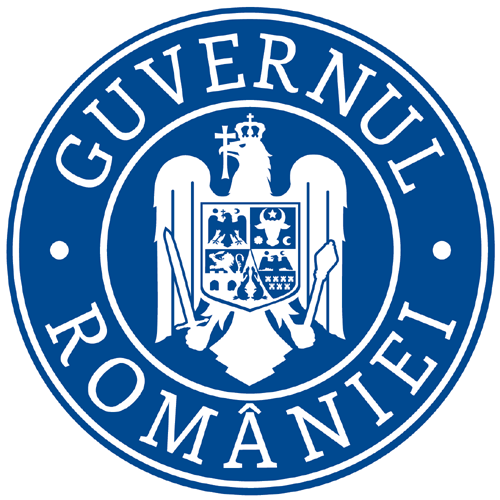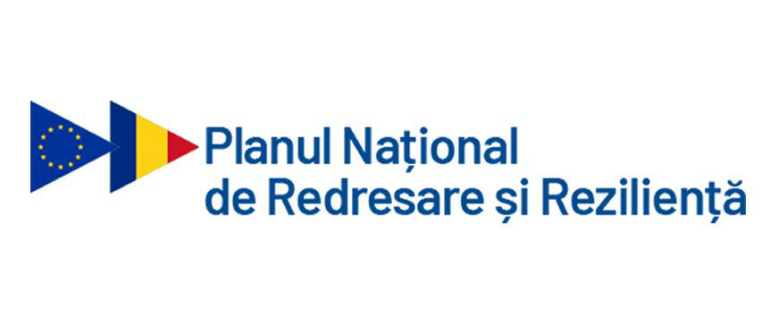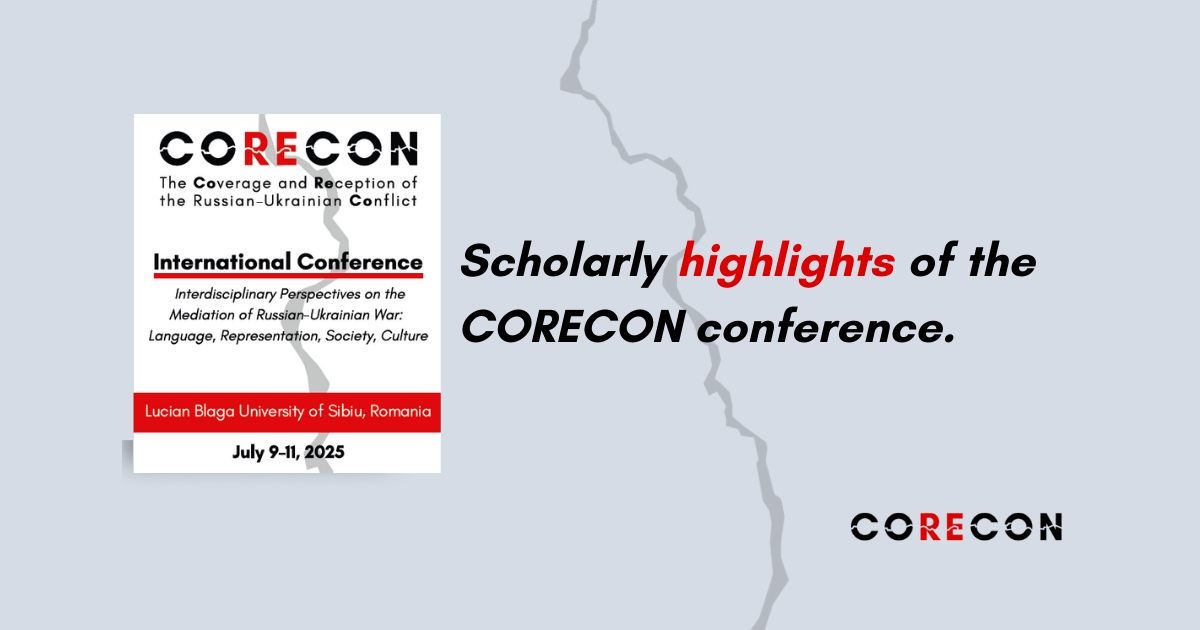On July 9-11, 2025, University of Lucian Blaga of Sibiu hosted the CORECON key event – the project-related international conference, whose theme was Interdisciplinary Perspectives on the Mediation of Russian-Ukrainian War: Language, Representation, Society, Culture. In comparison to other conferences, its theme was relatively narrow in scope; however, the conference aimed at opening up mediated conflict discourse studies to various perspectives for systematic interdisciplinary research.
In CORECON, interdisciplinarity is not understood as “cherry-picking” random elements from two or more disciplines. Rather, it means trying to do research in compliance with the theoretical and methodological rules of the disciplines involved, so that the end result makes sense and is sound for both or all of them. Needless to say, the research problem (here: mediated conflict discourses) and basic concepts (here: language, representation, society and culture) need to be agreed upon and defined or operationalized properly for such interdisciplinary studies. This is what CORECON project hopes to put to test by bringing together various specialists, researchers and practitioners.
The conference call invited representatives of linguistics; media/journalism studies; war studies; history; sociology; psychology; literary and cultural studies; post-communist studies and memory and area studies. CORECON project has asked them to consider and discuss pertinent empirical research questions, but also theoretical perspectives and methodological approaches. The conference was attended by 40 scholars with more than 30 presentations, in addition to 3 keynote addresses and 3 workshops.
The event was funded from the Romanian Ministry of Research, Innovation and Digitalization, and which is financed through the EU’s NextGenerationEU instrument via the National Recovery and Resilience Plan of Romania. Particularly, the three invited conference keynote speakers shared excellent research and interdisciplinary outlook on the issues relevant to this conference.
Firstly, Professor Alin Coman, from the Department of Psychology at Princeton University and the Cognition in Collectives Lab, offered a perspective from psychology, as he investigates how cognition manifests in, and is influenced by, the social contexts in which it occurs. His research interests include how conversational interactions can reshape memory, by promoting shared remembering and shared forgetting, and how socio-cognitive processes can facilitate the formation of collective beliefs. His research program is part of an emerging field in the social sciences that connects micro-level local dynamics of social influence with large-scale social phenomena of collective memory.
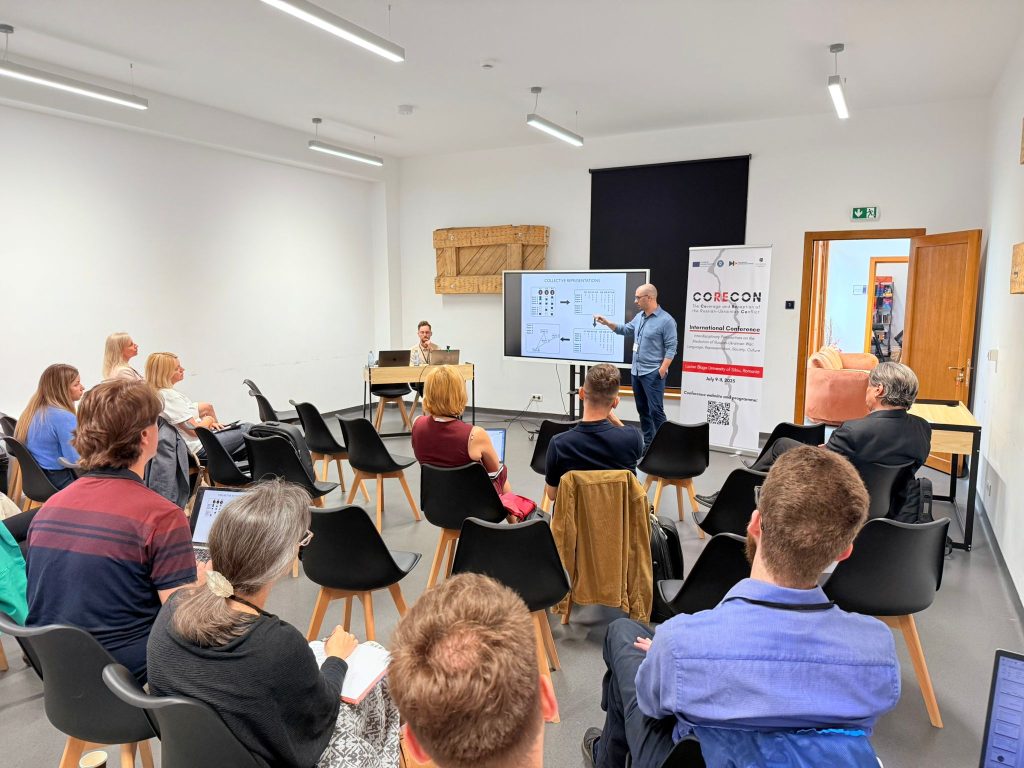
In his talk “Narratives that shape worlds: For better and for worse” he demonstrated how individuals may attempt to “retell” shared collective past and, potentially, indicate a trajectory for the future. These stories serve adaptive purposes, helping members of large communities to cooperate. Americans tell stories about the “shining city on a hill,” Russians about their “triumph over alien forces,” and Romanians about their historical importance as a “gate to Christianity.” The talk argued that the human mind’s capacity to search for meaning, paired with the ability to synchronize these cognitive products (i.e., meanings) across large groups of individuals, makes human communities particularly susceptible to political entrepreneurs. These entrepreneurs build on narrative templates to both provide meaning and synchronize their supporters’ mental representations. The speaker referred to empirical studies that explored the interaction among cognitive and social factors involved in the formation, maintenance, and activation of narratives across human groups, with implications for contemporary conflicts.
Secondly, Professor Valentyna Ushchyna from the Department of English Philology at Lesya Ukrainka Volyn National University of Lutsk (also a visiting professor at the University of Pittsburgh, PA, USA and a Fulbright Scholar Award grantee and Guest lecturer at the Post-graduate School of Humanities at Jagiellonian University, Poland) offered a range of perspectives from (critical) discourse analysis and sociolinguistics to risk communication. Her recent research focuses on linguistic expressions of stance and stance-taking, discourse of risk, and power in political discourses.
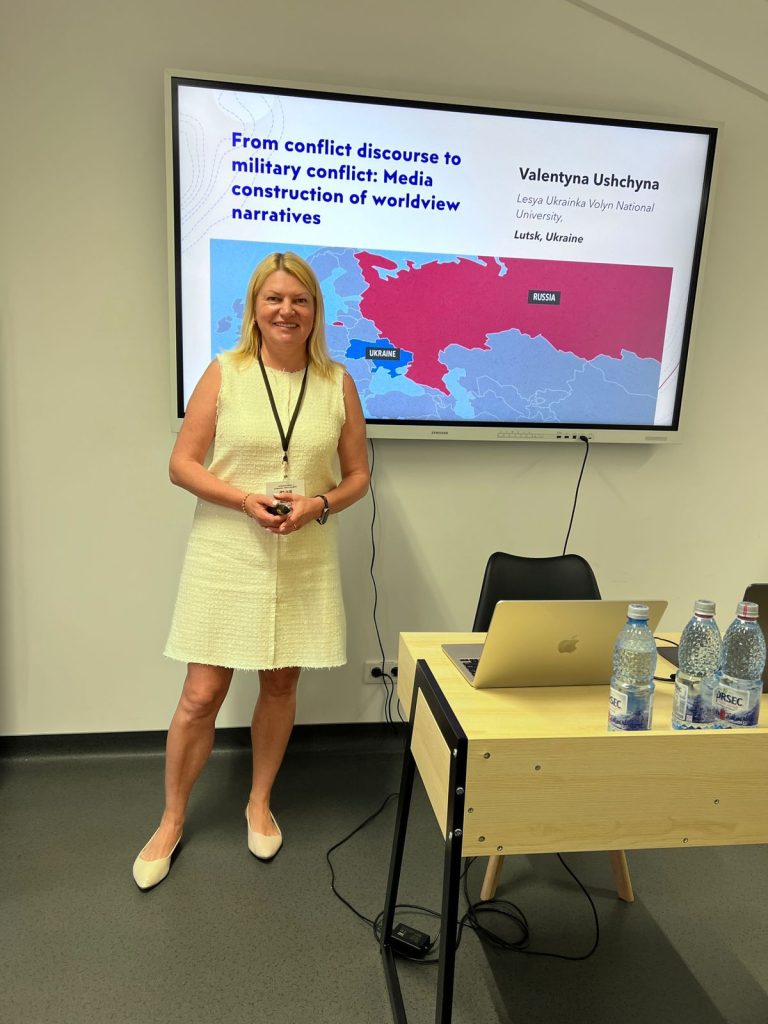
Her talk “From conflict of discourse to military conflict: Media construction of worldview narratives” attempted to grasp the discursive nature of the Russo-Ukrainian war. National identity is a manifold composite of stances taken by individual as well as collective speakers in various situations of communication. As a result, conflictual stances, built in war discourse, express national, political, or sociological worldviews of the stance-takers, reflecting their antagonistic and (sometimes even hate-infused) ideologies and beliefs. Also the way people represent and understand the conflict is derived from opposing strands of Ukrainian and Russian media discourse, and diverse semiotic systems to create and transmit meanings. The talk illustrated various modalities employed in the process of discursive construction and (de)legitimation of stances and identities.
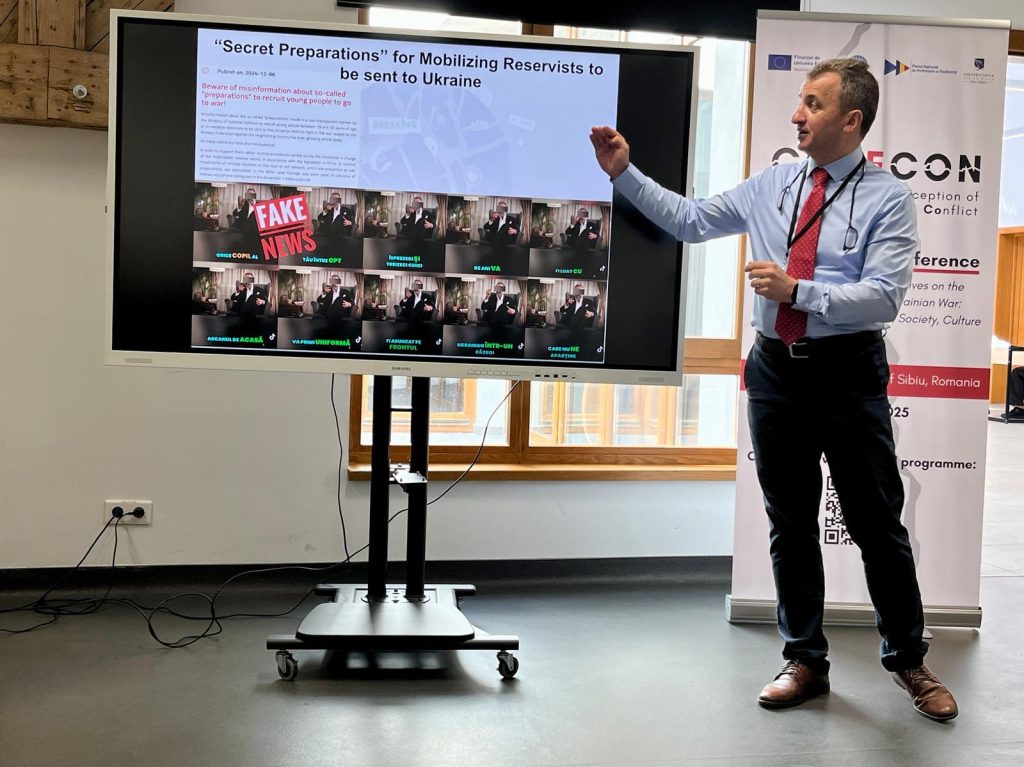
Thirdly, Major-general (ret.) Constantin Spînu, PhD, the former Head of Information and Public Relations Directorate of Romanian Ministry of National Defense in Bucharest offered a practitioners’ perspective. His contribution was based on his academic specialization in political science and journalism, and his extensive experience as Media Officer at strategic levels of command, within Romania and internationally, as well as his service, in active-duty capacity, for NATO, US-led commands and in the collaboration with the European defence sector.
His talk “Hostile communication actions carried out by the Russian Federation in the public space of Romania. Options of counteraction” showed howRussia had resumed the old Soviet style active disinformation measures, with well-funded influence campaigns, using the new instruments offered by the internet-based technology. Even though the Romanian society regards itself as anti-Russian, the Kremlin’s concocted strategic divisive narratives have penetrated large segments from the targeted public opinion, especially in the 2022-2024 period. The talk focused on vulnerability factors regarding disinformation related to the war of aggression in Ukraine: topics that tend to polarize the society and exacerbate the fears, frustrations and anxieties associated with the danger and uncertainty generated by the military conflict taking place across the border. The talk highlighted the effective measures taken by the Ministry of Defence, through the tools of Disnformation Radar, to counteract, debunk and prebunk fake news.
The three plenary talks were deeply appreciated by the participants for their inspirations and interactions across disciplines and fields of study, which surely brought forth new ideas and will catalyze new collaborations in CORECON and beyond.
Text by Katarzyna Molek-Kozakowska

